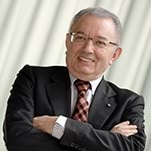Investing to keep on growing
Giorgio Squinzi: Mapei plans to become increasingly competitive on international markets.
Interview with Giorgio Squinzi: Mapei plans to become increasingly competitive on international markets.
The Mapei Group’s income reached 2.4 billion Euros in 2017. Is the goal now 3 billion Euros?
Turnover of 3 billion Euros? It will take a few more years, but I have reason to believe we will get there. I am simply basing my assumptions on the facts and figures.
What can we say about the markets in their entirety in 2018?
2018 has been a particularly complicated year due to some negative factors affecting the overall trend in the global economy. More specifically, increases in the cost of raw materials and the financial instability that affected certain extremely important markets like, for example, Turkey and Argentina. This has been further proof of how financial workings can have even heavy consequences on the real economy.
So, what have been the effects of the international economic situation on Mapei’s results?
The combination of these two negative factors has had its impact on Mapei’s results: indeed, income has risen by over 5% compared to 2017, if exchange rates had remained stable the increase would have been greater than 8%. So, we had to deal with negative currency exchange effects throughout this year. The internationalisation process, one of the strong points of Mapei’s strategy, has, however, allowed us to mitigate the effects of negative factors emerging globally. Our drive towards internationalisation has continued even more this year through new acquisitions that have reinforced our presence globally. Ever since we opened our first foreign plant in Canada in 1978, we have never stopped. And this will continue to be our strategy.
What is Mapei’s secret?
We operate on a global market through a widespread network of business companies and manufacturing plants. A network we have built up over time, so that we can supply our products everywhere. What is our secret? I would say it is the fact that we operate in close proximity to consumers of Mapei materials and products.
Nevertheless, the Italian building industry is still struggling to really take off.
The Italian market is still going through a tricky period. The economic situation is being complicated even further by political uncertainty and a lack of guidelines and decision-making in decisive sectors. This is the case, for example, of major works and infrastructures, which are a real driver behind the nation’s overall growth, which incidentally has slowed down even further over the last few months. The biggest cause for concern in Italy is the fact that the government is not paying suppliers, causing financial imbalances that are likely to impact on even big companies.
Mapei is a global company and internationalisation continues to be its trump card.
As I have always said, it is our winning strategy because it has safeguarded us against those problems inevitably arising on individual markets or against the potential negative effects of more international phenomena. We have spoken about the volatility of exchange mechanisms, but trade wars and the issue of tariffs, which have been very much to the fore over the last year, are not a serious cause for concern for us because Mapei is a global company. Our business operations are located in the countries where we sell, and this provides greater protection and a competitive edge. Even the possibility of North American tariffs does not scare us. Our sales in America are almost 1 billion US dollars, but it is all generated locally.
Which are the most promising markets for Mapei?
At the moment, North America is a rapidly expanding market, but we are achieving positive results everywhere; in Western Europe (from Greece to Scandinavia) in the East and right throughout Asia.
Mapei broke its record in terms of investment in 2017: over 110 billion Euros. Has it risen even further in 2018?
In future we will continue to adapt to what will undoubtedly be a tricky global economic situation by focusing on internationalisation and our ability to innovate and improve the sustainability of our products. These are the necessary conditions for reinforcing the positive trend in growth that Mapei will continue to pursue in order to become increasingly competitive on international markets.
By the end of 2018, we will have beaten our 2017 record for investment in new products and manufacturing operations to strengthen our production lines worldwide and, most notably, in North America. Investments in 2018 amount to around 120-125 million Euros. This strategy will allow our company to look to the future.
These operations are progressing hand-in-hand with an increase in staff: our total number of staff this year is over 10,000. This increase follows the 880 new members of staff employed in 2017 that took the overall figure to 9516 back then.
Acquisitions have continued to be made this year.
We have been focusing on an acquisitions process aimed at very specific business realms. This explains our acquisition of the Italy-based company Fili & Forme, which will allow us to extend our range of products, and the Spanish company Tecnopol, which has made us one of the leading players on the chemicals for the building industry market in Spain as regards waterproofing products.
Over the last few weeks Mapei has published its 2017 Sustainability Report. What is new?
The Report does not just refer to Mapei SpA, but also the Group’s Italian subsidiaries: the decision to include these businesses in the report is the most significant novelty. Proof that our subsidiaries share the parent company’s belief in honest and transparent communication with stakeholders, making sustainability one of the key factors in their business operations. The focus on sustainability stands alongside such concepts as internationalisation, Research & Development and specialisation, our traditional bearing columns.






